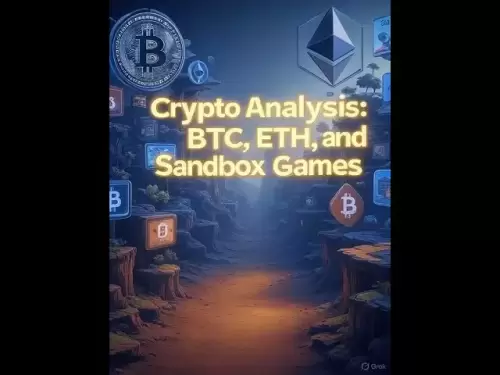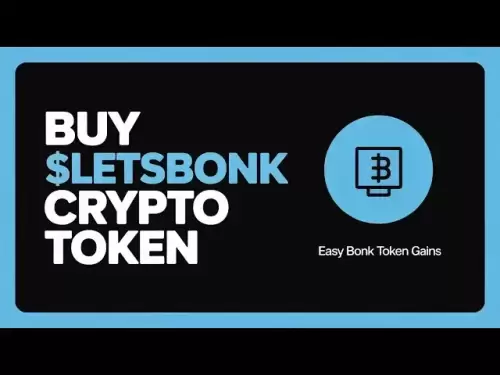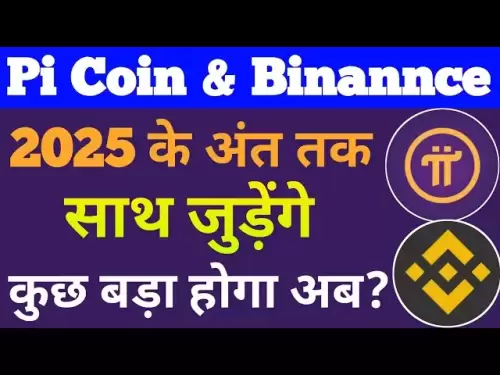-
 Bitcoin
Bitcoin $118100
-0.44% -
 Ethereum
Ethereum $3585
5.43% -
 XRP
XRP $3.434
5.65% -
 Tether USDt
Tether USDt $1.000
0.02% -
 BNB
BNB $743.8
3.89% -
 Solana
Solana $178.7
3.84% -
 USDC
USDC $1.000
0.03% -
 Dogecoin
Dogecoin $0.2381
12.81% -
 TRON
TRON $0.3270
3.62% -
 Cardano
Cardano $0.8315
4.93% -
 Hyperliquid
Hyperliquid $44.51
-4.42% -
 Stellar
Stellar $0.4710
1.52% -
 Sui
Sui $3.896
-2.51% -
 Chainlink
Chainlink $18.09
6.98% -
 Hedera
Hedera $0.2681
9.31% -
 Bitcoin Cash
Bitcoin Cash $516.7
4.83% -
 Avalanche
Avalanche $23.95
6.96% -
 Shiba Inu
Shiba Inu $0.00001490
5.67% -
 UNUS SED LEO
UNUS SED LEO $8.966
0.80% -
 Toncoin
Toncoin $3.294
4.39% -
 Litecoin
Litecoin $105.4
4.69% -
 Polkadot
Polkadot $4.356
5.30% -
 Uniswap
Uniswap $10.29
17.25% -
 Monero
Monero $327.9
-3.04% -
 Bitget Token
Bitget Token $4.942
4.33% -
 Ethena USDe
Ethena USDe $1.001
0.08% -
 Pepe
Pepe $0.00001348
2.17% -
 Dai
Dai $1.000
0.02% -
 Aave
Aave $320.8
0.58% -
 Bittensor
Bittensor $411.8
-4.07%
Does SOL trading require KYC certification?
KYC is typically required for SOL trading on centralized exchanges, but not on decentralized ones or P2P platforms, though risks like scams increase without it.
Apr 21, 2025 at 02:43 am

Does SOL trading require KYC certification?
Trading Solana (SOL), like many other cryptocurrencies, often involves Know Your Customer (KYC) procedures, but the necessity of KYC can vary depending on the platform or exchange you choose to use. This article will delve into the specifics of KYC requirements for SOL trading, helping you understand whether you need to go through this process and what it entails.
Understanding KYC and Its Importance
KYC, or Know Your Customer, is a process used by businesses to verify the identity of their clients. The primary goal of KYC is to prevent fraud, money laundering, and other illegal activities. In the cryptocurrency world, exchanges and platforms implement KYC to comply with regulatory standards and ensure the security of their users.
KYC Requirements for SOL Trading on Centralized Exchanges
When trading SOL on centralized exchanges such as Binance, Coinbase, or Kraken, you will likely need to complete a KYC process. Centralized exchanges are required to adhere to strict regulations, which often include mandatory KYC procedures. Here's what you can expect when undergoing KYC on these platforms:
- Registration: You'll need to create an account by providing basic information such as your name, email address, and sometimes a phone number.
- Identity Verification: You'll be asked to submit a government-issued ID, such as a passport or driver's license, to confirm your identity. Some platforms may also require a selfie or a video to match your face with the ID.
- Address Verification: Some exchanges may ask for proof of address, such as a utility bill or bank statement, to further verify your location.
- Additional Information: Depending on the platform, you might need to provide additional details like your occupation or source of funds.
KYC Requirements for SOL Trading on Decentralized Exchanges
Decentralized exchanges (DEXs) like Uniswap or SushiSwap operate differently from centralized exchanges. DEXs typically do not require KYC because they are designed to be more private and less regulated. However, there are exceptions and nuances to consider:
- Direct Trading: If you're trading SOL directly on a DEX, you usually won't need to go through KYC. You can connect your wallet and start trading without providing personal information.
- Using a Bridge or Aggregator: Some DEXs or services that facilitate trading between different blockchains might require KYC if they are integrated with centralized services or if they need to comply with specific regulations.
- Regulatory Changes: The regulatory environment for cryptocurrencies is evolving, and some DEXs might start implementing KYC in the future to comply with new laws.
Trading SOL Without KYC: Peer-to-Peer Platforms
Peer-to-peer (P2P) platforms like LocalCryptos or Paxful offer another way to trade SOL without KYC. These platforms connect buyers and sellers directly, allowing for more privacy. Here's how you can trade SOL on P2P platforms:
- Create an Account: You'll need to sign up for an account, but the information required is usually minimal compared to centralized exchanges.
- Find a Trade: Browse listings or create your own offer to buy or sell SOL. You can negotiate terms directly with the other party.
- Complete the Transaction: Once you agree on terms, you'll typically use an escrow service to hold the funds until the transaction is complete. After the seller confirms receipt of payment, the SOL is released to the buyer.
Trading SOL Without KYC: Using Non-Custodial Wallets
Another way to trade SOL without KYC is by using non-custodial wallets like Phantom or Solflare. These wallets allow you to manage your SOL directly, and you can trade on DEXs without needing to go through a KYC process. Here's how you can do it:
- Set Up a Wallet: Download and install a non-custodial wallet that supports SOL. Follow the instructions to create a new wallet or import an existing one.
- Fund Your Wallet: Transfer SOL to your wallet from an exchange or another wallet.
- Connect to a DEX: Use your wallet to connect to a DEX like Raydium or Orca. You can then swap SOL for other tokens or vice versa without any KYC requirements.
Potential Risks of Trading Without KYC
While trading SOL without KYC can offer more privacy, it comes with certain risks. Without KYC, you might be more vulnerable to scams and fraud. Here are some risks to consider:
- Scams: P2P platforms and non-KYC exchanges can be hotspots for scammers. Always be cautious and verify the reputation of the other party before trading.
- Regulatory Risks: Trading without KYC might be illegal in some jurisdictions. Make sure you understand the laws in your country before proceeding.
- Security: Without the oversight of a centralized exchange, you're responsible for the security of your funds. Use strong passwords, enable two-factor authentication, and keep your private keys safe.
Conclusion
In summary, whether you need KYC certification to trade SOL depends on the platform you choose. Centralized exchanges typically require KYC, while decentralized exchanges and P2P platforms often do not. However, it's essential to weigh the benefits of privacy against the potential risks of trading without KYC. Always ensure you're complying with local regulations and taking steps to protect your assets.
Frequently Asked Questions
1. Can I trade SOL anonymously on centralized exchanges?
No, centralized exchanges generally require KYC to comply with regulations, so trading anonymously is not possible on these platforms.
2. Are there any fees associated with KYC on exchanges?
Most exchanges do not charge a fee for the KYC process itself, but you might incur fees for trading or withdrawing funds.
3. How long does the KYC process take on most exchanges?
The duration of the KYC process can vary, but it typically takes anywhere from a few minutes to a few days, depending on the platform and the volume of verification requests.
4. Can I use a VPN to trade SOL without KYC?
Using a VPN might help mask your IP address, but it won't bypass KYC requirements on centralized exchanges. For DEXs and P2P platforms, a VPN can enhance your privacy but won't affect the need for KYC.
Disclaimer:info@kdj.com
The information provided is not trading advice. kdj.com does not assume any responsibility for any investments made based on the information provided in this article. Cryptocurrencies are highly volatile and it is highly recommended that you invest with caution after thorough research!
If you believe that the content used on this website infringes your copyright, please contact us immediately (info@kdj.com) and we will delete it promptly.
- Solana, Launchpads, and BONK: Riding the Meme Coin Wave in Style
- 2025-07-19 03:50:12
- Dogwifhat, Pepe, and Altcoin 2025: Meme Coin Mania or Real Utility?
- 2025-07-19 02:50:13
- Bitcoin: From Niche Crypto to Global Asset Dominating Crypto Finance
- 2025-07-19 02:50:13
- Coinbase System Upgrade: What It Means for Your Crypto
- 2025-07-19 02:30:13
- Gold Prices, OTC Tokens, and Mining: A New York Minute on the Golden Rush
- 2025-07-19 03:50:12
- Riding the Crypto Whale: Bitcoin, Altcoins, and the $5 Trillion Dream
- 2025-07-19 02:30:13
Related knowledge
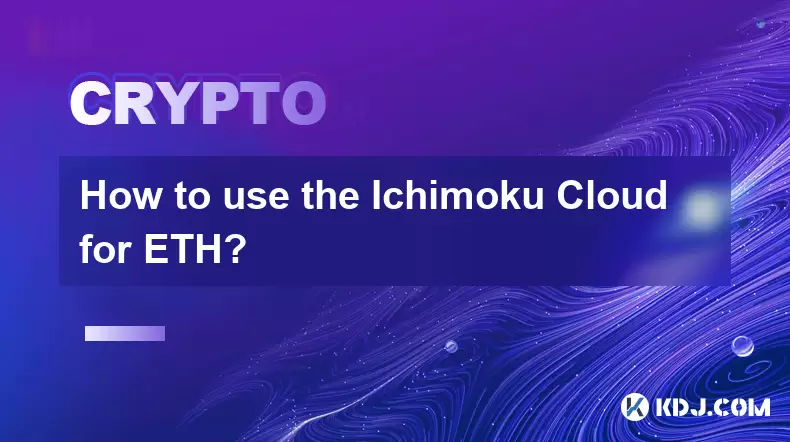
How to use the Ichimoku Cloud for ETH?
Jul 18,2025 at 09:56pm
Understanding the Ichimoku Cloud and Its ComponentsThe Ichimoku Cloud, also known as Ichimoku Kinko Hyo, is a versatile technical analysis tool that p...
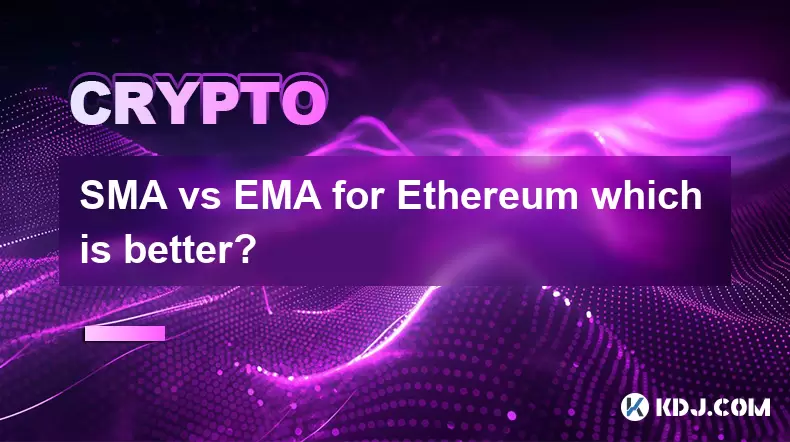
SMA vs EMA for Ethereum which is better?
Jul 19,2025 at 12:36am
Understanding the Basics of SMA and EMAIn the world of cryptocurrency trading, especially when dealing with Ethereum, technical indicators play a cruc...
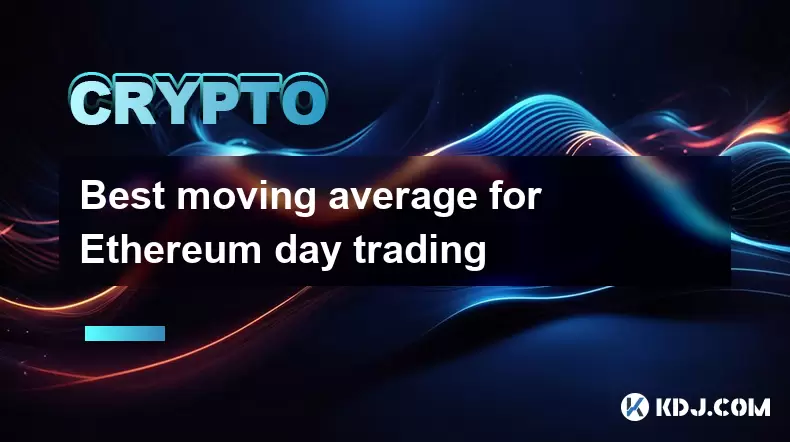
Best moving average for Ethereum day trading
Jul 19,2025 at 01:42am
Understanding the Role of Moving Averages in Ethereum Day TradingIn the realm of Ethereum day trading, moving averages are indispensable tools for ide...

How to customize USDT TRC20 mining fees? Flexible adjustment tutorial
Jun 13,2025 at 01:42am
Understanding USDT TRC20 Mining FeesMining fees on the TRON (TRC20) network are essential for processing transactions. Unlike Bitcoin or Ethereum, whe...

USDT TRC20 transaction is stuck? Solution summary
Jun 14,2025 at 11:15pm
Understanding USDT TRC20 TransactionsWhen users mention that a USDT TRC20 transaction is stuck, they typically refer to a situation where the transfer...

How to cancel USDT TRC20 unconfirmed transactions? Operation guide
Jun 13,2025 at 11:01pm
Understanding USDT TRC20 Unconfirmed TransactionsWhen dealing with USDT TRC20 transactions, it’s crucial to understand what an unconfirmed transaction...

How to use the Ichimoku Cloud for ETH?
Jul 18,2025 at 09:56pm
Understanding the Ichimoku Cloud and Its ComponentsThe Ichimoku Cloud, also known as Ichimoku Kinko Hyo, is a versatile technical analysis tool that p...

SMA vs EMA for Ethereum which is better?
Jul 19,2025 at 12:36am
Understanding the Basics of SMA and EMAIn the world of cryptocurrency trading, especially when dealing with Ethereum, technical indicators play a cruc...

Best moving average for Ethereum day trading
Jul 19,2025 at 01:42am
Understanding the Role of Moving Averages in Ethereum Day TradingIn the realm of Ethereum day trading, moving averages are indispensable tools for ide...

How to customize USDT TRC20 mining fees? Flexible adjustment tutorial
Jun 13,2025 at 01:42am
Understanding USDT TRC20 Mining FeesMining fees on the TRON (TRC20) network are essential for processing transactions. Unlike Bitcoin or Ethereum, whe...

USDT TRC20 transaction is stuck? Solution summary
Jun 14,2025 at 11:15pm
Understanding USDT TRC20 TransactionsWhen users mention that a USDT TRC20 transaction is stuck, they typically refer to a situation where the transfer...

How to cancel USDT TRC20 unconfirmed transactions? Operation guide
Jun 13,2025 at 11:01pm
Understanding USDT TRC20 Unconfirmed TransactionsWhen dealing with USDT TRC20 transactions, it’s crucial to understand what an unconfirmed transaction...
See all articles
























